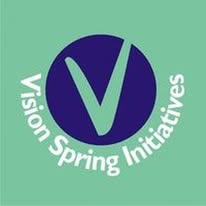
Other Forms of Approach to SRHR before Covid-19 happened
Before the advent of the pandemic in 2020, there was a need for widespread sexual and reproductive health information and services. Despite collaborative efforts at the national and global level, medical services such as Pre and Post-exposure prophylaxis for HIV/AIDs, oral HIV test kits, medical abortion, and access to various contraceptive methods and information to improve the sexual and reproductive health of women is still low and expensive especially in developing countries like Nigeria.
Youth-focused/led organizations in Nigeria have integrated SRHR projects into their main focus areas. This integration has enabled the development of projects that focus on delivering SRHR information and services to adolescents and young people (AYP). With the aid of technology advancement and social media, these organizations have been able to reach a wider audience of AYP, by proving daily SRHR nuggets and create youth-friendly centers.
SRHR information and services gap during the heat of the pandemic.
Globally, there was an alarming increase in all forms of violence against women and girls. For developing countries like Nigeria, with inept judicial systems and enabling factors such as control, dominance, and financial insecurities. During the lockdown period, partner violence in Nigeria rose significantly to 56%. A recent study also reported the various difficulties faced by adolescents and young people in accessing sexual and reproductive health services and information during the lockdown. Reported difficulties during the lockdown included stock-out of drugs (25.7%), stock-out of contraceptives (25.1%), harassment by the law enforcement agents (76.9%), and transportation difficulties (55.8%).
The COVID-19 pandemic still has an adverse effect on adolescents and young people’s lives, health, and well-being. The medium- and long-term impacts could be devastating if adequate measures are not taken to guarantee basic rights for adolescents and young people. Closure of schools for a long period and stay-at-home rules left adolescents and young people across the world including Nigeria without access to essential sexual and reproductive health information, services, and rights, including comprehensive sexuality education (CSE). In fact, in many locations, all CSE was delivered out of school.
Digital approach to delivering CSE, reproductive health and services
One opportunity the pandemic provided was the chance to do things in new ways. The pandemic revealed the need for an extensive CSE and reproductive health and services implementation. Likewise, the pandemic intensified the development and implementation of digital sexuality education and the provision of services.
At the beginning of the year 2021, Vision Spring Initiatives (VSI) developed a weekly radio show titled the #WhatnWhere Radio show. The title was carefully created to provide SRHR information and non-discriminatory centers to access SRHR services. The show which span from March 2021 to August 2021 had 25 episodes in all and aired live every Tuesday. A unique feature about the show was that it had the majority of young women below 30 years as guests. This enabled young women to talk about what reproductive rights means to them, the challenges and stigma they face in accessing reproductive services, and healthcare institutions and centers that provide non-discriminatory sexual and reproductive services and information. The show recorded 6 million listeners in a month and 200,000 listeners in a day. The #WhatnWhere Radio show focused extensively on providing comprehensive sexuality information and services.
SRHR is a wide concept that covers several reproductive health issues often addressed in fractions. To have a robust health standard for all, every component on SRHR must be addressed comprehensively. The #WhatnWhere Radio show discussed topics like exploring sex and gender roles, implications of harmful traditional practices like Female Genital Mutilation (FGM) on sexual rights of women, improving maternal health to reduce maternal mortality, understanding sexual consent, the importance of regular STI/STDs checks for young people, bodily autonomy, enhancing access to reproductive services for persons with disabilities, safe and accessible comprehensive abortion care, post-abortion care, and menstrual hygiene management.
To listen to any of the episodes click here.
By Oluwatobi Ayodele
